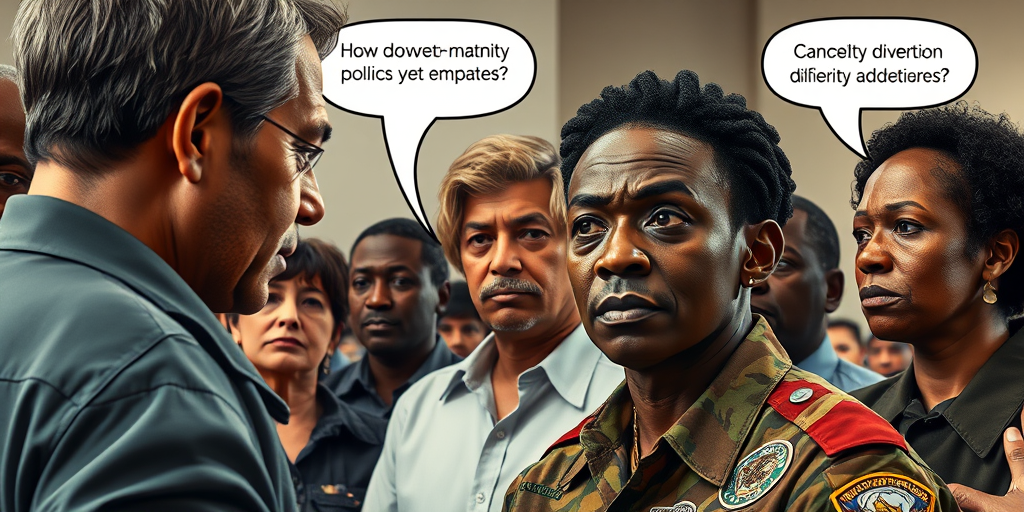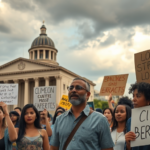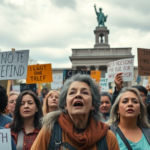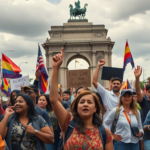The Myth of Meritocracy: Diversity Under Fire in the Defense Sector
The recent policy shifts led by Secretary of Defense Pete Hegseth have ignited a storm of debate as they come under scrutiny for allegedly undermining diversity and inclusion within the U.S. Department of Defense. Critics argue that these changes, ostensibly in support of reinforcing a meritocratic system, disproportionately target multicultural and diversity initiatives, raising community interest across the nation.
Policy Changes Affecting Diversity
The focus of the controversy lies in the sweeping reforms that have put affirmative action efforts in military academies in question and led to the removal of certain ‘woke’ materials from military libraries. This includes a review mandated by Hegseth to eliminate content deemed excessively progressive or DEI (Diversity, Equity, and Inclusion)-oriented.
Furthermore, there is concern within the local and national community over the systematic removal of gender-diverse individuals from military service. Critics, such as Lex King, the author of the sprawling critique “The Myth of Meritocracy: Diversity Will Never Die,” assert that these actions serve to favor a narrow conception of meritocracy predominantly benefiting straight white men.
“These policies erode the foundations of equal opportunity laws,” notes civil rights attorney Lisa Mendonza, who has been vocal in opposing the changes. “Restructuring diversity initiatives undercuts the rich cultural tapestry that strengthens our military and, by extension, our democracy.”
The Local Impact on Communities
For local communities, particularly in areas with significant military presence or diverse populations, these policy changes bring about tangible repercussions. The exclusion of historic, racially diverse groups like the Tuskegee Airmen from military training curriculums raises pressing questions about the interpretation and value of ‘merit.’
John Harris, a retired Air Force officer and descendant of a Tuskegee Airman, expressed his dismay, stating, “Erasing these significant contributions is like erasing the very ethos of innovation and resilience they represented. It’s a loss for all service members, regardless of background.”
Communities also face a cultural backlash, as Hegseth’s directive has reportedly removed observance months such as Hispanic Heritage Month and Pride Month, along with federal holidays like MLK Jr. Day and Juneteenth, from celebratory activities. These actions contrast sharply with the sustained recognition of events like Memorial Day.
A Precedent of Disparity
Such differentiation in holiday observance underscores the perceived preferential bias. Federal holidays are nominally equal under U.S. law, but the disparity in recognition has raised accusations of intentional discrimination based on race and ethnicity—a point of local impact that breeds division.
Experts warn against ignoring the broader implications. Historian and diversity advocate Dr. Rachel Whitman emphasizes: “The problem isn’t limited to today’s defense policies. It’s reflective of a long-standing battle between progress and regression that has played out in different forms across our history.”
What Lies Ahead
Looking forward, the potential ramifications of Hegseth’s policies could stretch beyond immediate community disturbances. By altering the status quo on military inclusion, it paves the way for broader debates on the national stage, with implications rippling through related sectors and affecting public discourse on diversity in America.
However, there may still be room for redress. Activists and legal experts foresee challenges to the policies, arguing they potentially clash with established equal opportunity mandates. Meanwhile, community coalitions are rallying to advocate for the protection of diversity initiatives and seek congressional intervention.
“We’re at a crucial juncture,” Dr. Whitman contends. “How we respond will determine the trajectory not merely for the military, but for our entire approach to diversity and inclusion as a society.”
These developments have local resources available for those affected. Veterans’ organizations, civil rights groups, and local government offices are extending support and keeping residents informed on the evolving situation.
Community Engagement: A Call to Action
Ultimately, the community’s role in shaping the outcome of these changes cannot be understated. Open forums and public meetings are essential avenues for residents to engage actively with policymakers and assert the values they hold dear, ensuring that diversity will never be sidelined under any guise.
In this ongoing discourse, the question remains: How can meritocracy and diversity coexist? And as history shows, the fight for inclusive representation within institutions resonates far beyond the headlines, touching the lives of residents throughout America.
The Woke News team continues to shed light on these impactful stories, as well as provide platforms for local voices striving to maintain the integrity of diversity where it matters most—in our communities and beyond.







